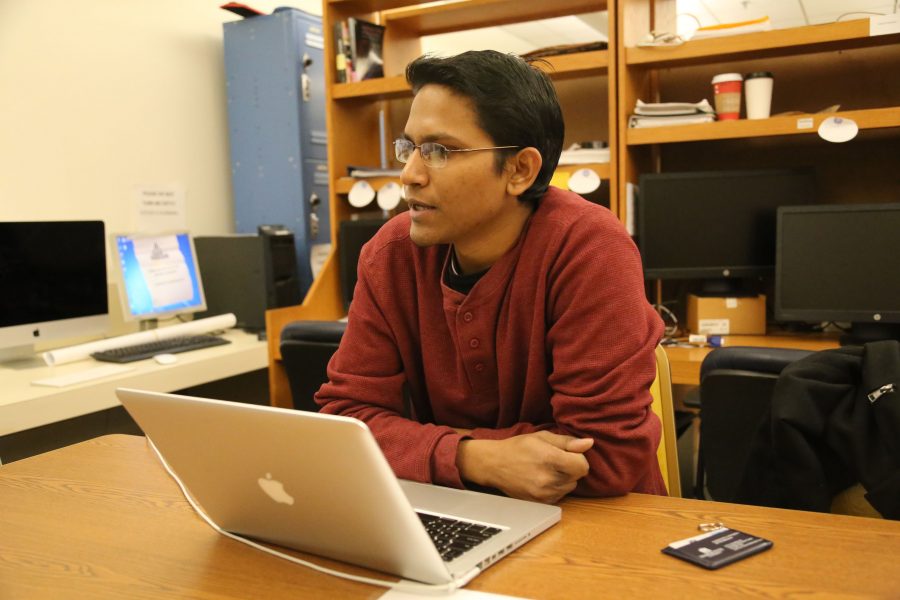A Marquette professor is developing an app that could help children with autism prepare for medical procedures.
The app displays hypothetical scenarios made up of pictures, words and sounds to form a step-by-step preview of procedures like X-rays and an MRI. This is a form of social story, which is a series of behavioral steps that are expected in an environment. The app uses a first-person narrator to describe the steps in a patient, reassuring manner.
Norah Johnson, a professor in the College of Nursing leading the development, said she had the idea for the app through personal experiences.
“I have a son with autism,” Johnson said. “When he was young, he had trouble with medical procedures. They used these social stories in schools, and I used them at home, to help him get through other things that were anxiety-provoking.”
Johnson said social stories are effective at reducing anxiety because they are specifically geared toward the way autistic children learn.
“They learn in a different way. Using the first-person is extremely helpful,” Johnson said. “Understanding how they’ll feel, what a procedure will sound like, all the sensory stuff. They’ll know that it’s okay and have instructions on what they can do.”
Johnson worked with the Children’s Hospital of Wisconsin to test the effectiveness of the app. A research study divided patients with autism into two groups — one that reviewed the app before going into a procedure and one that didn’t. The group that used the app had lower heart rate, blood pressure and procedure times than the group that didn’t.
The potential to decrease procedure times led to interest in the app from hospitals, Johnson said. “Health care is built on…getting people in and out during their appointment slots,” Johnson said. “When people don’t cooperate, it’s a problem. It throws everybody’s schedule off.”
Alana McVey, a graduate student in the College of Arts & Sciences, is currently helping with neurological research on children with autism through the Department of Psychology. She recently helped with a test that included using the MRI portion of Johnson’s app. Before going into a MRI scan, children with autism were allowed to engage with Johnson’s app and were given a preview of what the MRI would be like.
“We found that the MRI app was very helpful,” McVey said. “One thing that is common for most people with autism is they want to know what’s going to happen before it happens. There are videos in the app and it shows what the MRI actually looks like in advance.”
Tanvir Roushan, a graduate student in the College of Arts & Sciences, is working on combining social stories for several different procedures into one app. Roushan gave a preview of how the MRI portion of the app instructs patients.
“The app says to them, ‘there will be an individual helping me. I need to to get onto this MRI scanner. I’m not supposed to move, I should stay still,’” Roushan said. “When you give children with autism the proper information, they tend to feel more safe and agree to participate. If you just take a kid and say ‘you’re going to the doctor,’ they tend to resist and close down to their shell.”
Johnson said an iPad app might be more appealing and offer more flexibility to children than books with social stories. “You can keep updating an app, adding to it and refining it,” Johnson said. “You don’t have to always be using books that are out of date.”
Roushan said iPad apps are an ideal fit for people working in the medical field.
“It’s very easy and convenient to take out an iPad,” Roushan said. “Whenever patients come in, the medical person there could go through all the slides rather than taking them to a room with a computer or log into somewhere that requires internet. It’s very handy and the mobility is the prime quality.”
The Children’s Hospital of Wisconsin offered iPads in the kiosk area for patients to use early versions of the app over the past few weeks. With the implementation, Johnson started an 18-month study to learn about the staff’s experience using the app.


Farhad Faisal • Dec 7, 2016 at 6:34 am
Hallo Tanvir, and every body in McVey Group,
Congratulations for this wonderful work!
Boronana/Farhad Faisal
Dilruba • Dec 7, 2016 at 4:41 am
Awesome.